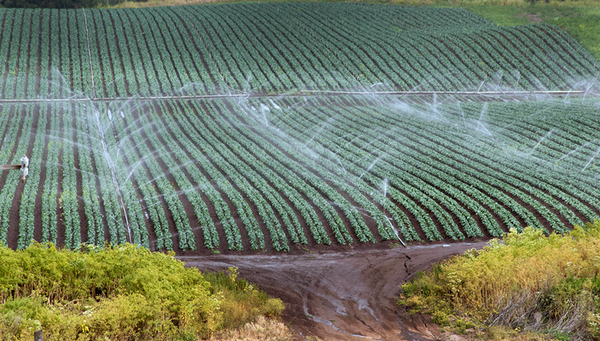Archive detail
Saving water – but not at any cost
October 15, 2018 |
Virtual water is the term used to describe water that is used in the production of a product. The amount used varies according to the place where the products are produced. In areas with moderate climates, the production of a kilogramme of wheat uses far less water than in desert regions. If countries that can produce in a way that conserves water resources export food, that saves water when seen from a global perspective. Studies show that global trade is indeed saving water in terms of food production. However, “saving water globally does not mitigate water shortages” says Eawag researcher Hong Yang. In a recently published study she and her colleagues identified three areas that muddy the waters of an otherwise encouraging water budget:
- Regional water shortages are intensified
If a country that is suffering from water shortages exports a lot, the local water problem is intensified – even if the product is being produced efficiently. This dilemma is one that Australia is experiencing, for example. The country sells a great deal of food to Thailand, where even more water would need to be used for production. But because of the high export levels, Australia is becoming drier itself in certain areas. - Water is saved – but not in the right place
Not all regions suffer from dryness. Switzerland, for example, imports tons of soy from Brazil. While the south American country does in fact use less water in production than Switzerland, because Switzerland actually has sufficient water resources, the trade between these two countries does not do anything to alleviate global water shortages - Fertilisers and pesticides replace water
Certain countries have been able to significantly reduce their water consumption for food production, in part because they spread fertilisers and pesticides on their fields. This in turn pollutes the surface waters and the environment. One example of this is the USA, which is very efficient in terms of its water consumption but on the flipside uses more plant protection agents in agriculture in order to do so.
Hong Yang’s research group is investigating how trade in agricultural products and thus virtual water affects the health of surface waters. Since Swiss farmers generally use large quantities of fertilisers and pesticides with comparatively little gains in productivity, this question is highly relevant for Switzerland, says Yang.

